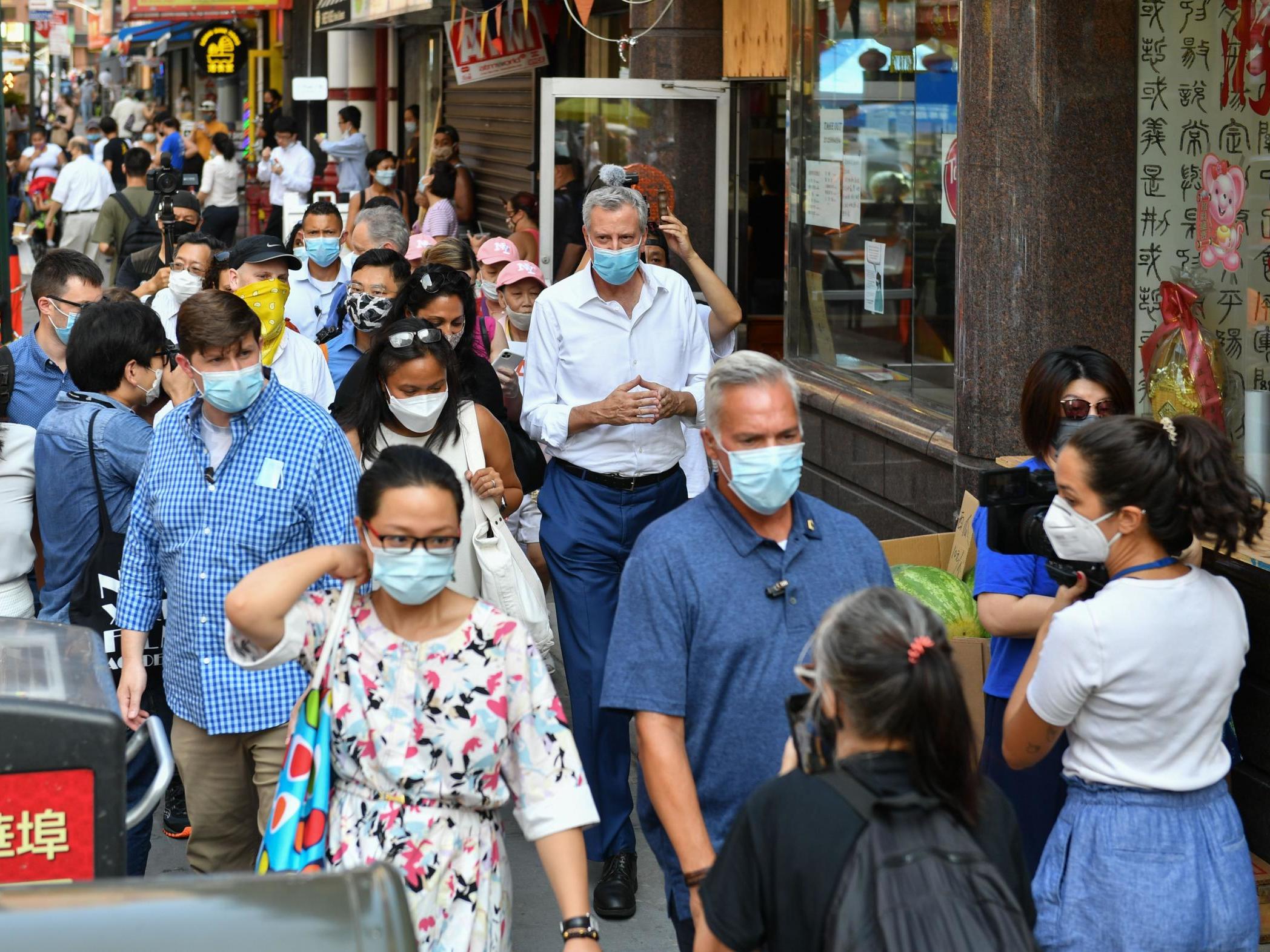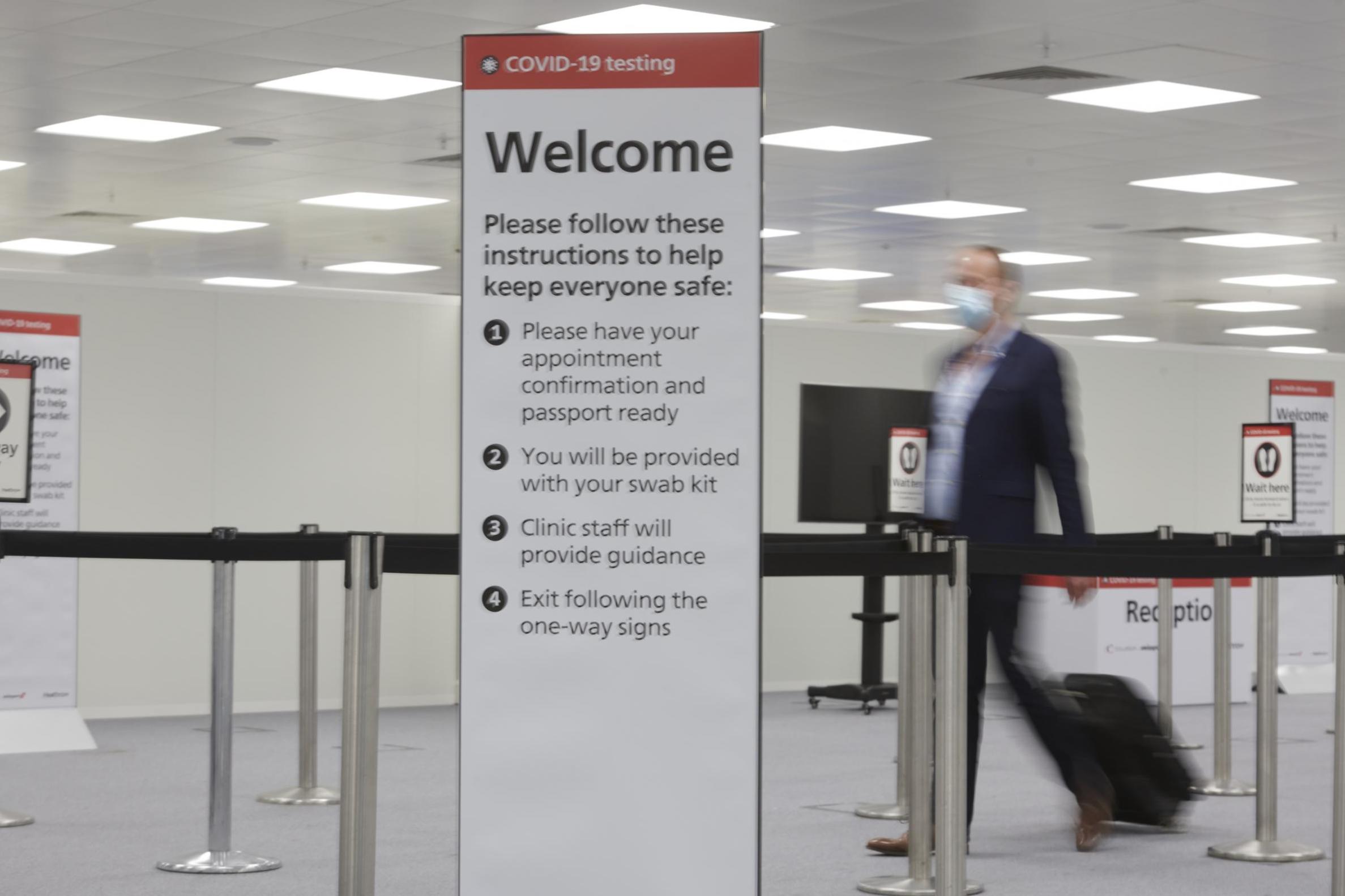Can I stop self-isolating when quarantine is lifted?
Simon Calder answers your questions on quarantine, compensation and Brexit


Q I am currently self-isolating having returned from Portugal 10 days ago. With quarantine being lifted from 4am on Saturday, do I need to continue to isolate or can I end my self-isolation immediately?
Name supplied
A It is not the answer you wish to hear, but you must continue to self-isolate in the same rigorous conditions as you have endured for the past 10 days: no associating with others, no venturing out except for a few tightly defined reasons (medical treatment, a court appearance or essential shopping that absolutely no one else can do for you), no dog-walking and no smiling. I made that last one up, but I don’t imagine you have been experiencing a laugh a minute during quarantine.
You would be forgiven for believing that self-isolation should be forgone as soon as the country of Portugal is regarded as low-risk by the UK government. Surely, you might think, people who happened to arrive in the UK from Faro, Madeira, Lisbon or Porto on Friday night – perhaps just six hours before the 4am deadline – will not be expected to go straight home and stay there for a fortnight?
You might have taken comfort from the words of the transport secretary in early July when he announced the easing of the UK’s blanket quarantine. He said at the time that anyone who had come from countries such as Greece and Italy would be able to cease self-isolation from 10 July, the day the rules were relaxed. But Grant Shapps misspoke, and it has since become clear that the government expected earlier arrivals to carry on with their self-sacrifice.
I have not had an explanation from officials about this, but I imagine the reasoning goes something like: we remove quarantine when we know that rates have declined to a low level of risk. People who return before our specified time are likely to have spent a significant length of time in the country when it had a higher level. So please continue – on pain of a £1,000 fine if you so much as step outside your home.
Such is travelling life in the strange summer of 2020.

Q What happens in aviation when we leave the European Union at the end of the year? Wizz Air and Ryanair aren’t British owned. Will they be allowed to continue to fly?
Ron
A Until the coronavirus pandemic, at least, UK passengers benefited from the most competitive and extensive air network in Europe. The EU’s “open skies” agreement allowed airlines to flourish. That is the deal which allows any European airline to fly between any two points within the EU, with home-grown successes easyJet and Jet2 up against foreign carriers such as Ryanair of Ireland and Wizz Air of Hungary. Open skies also enabled easyJet to become a leading player in continental Europe, particularly in and between France, Italy and Spain.
But four years after the British people voted to leave the EU, the future of air links between the UK and Europe is still unclear. As with so many aspects of life, the UK government is desperately hoping that the previous aviation benefits will be maintained, even though we are no longer members of the European club.
I think, though, we can assume that the open skies agreement will be torn up. That is the assumption of the airlines, too – which is why at least three “new” carriers have been created ahead of 1 January 2021 (incidentally, we did leave the EU earlier this year but we are still pretending to be in it). Ryanair and Wizz Air have both set up UK subsidiaries to allow them to maintain services, while easyJet Europe, based in Vienna, will enable that airline to continue to link nations within the EU.
All we know is that flying will be worse than if we had remained in the European Union, with fewer options and higher prices. Certainly, coronavirus has had a similar effect but Brexit will add to the pain from the end of 2020. Meanwhile, the airlines are preparing as best they can to limit the damage to their finances and our travel prospects.

Q In December last year I arranged a break in New York for later this month, with flights and accommodation booked separately. I thought it would be smart to book ahead for August.
When the flights were cancelled, the airline refunded fairly promptly. But the hotel is a different story. I paid over £600 in full on a non-refundable basis, with the sum going to a third-party website. I now see it is an online travel agent registered in Gibraltar.
It is impossible for British travellers to reach the US at present, so I asked the agent to postpone the booking by a year. They fobbed me off, saying their systems didn’t allow it. I then contacted the hotel direct to ask if they could intervene. They said they would be happy to postpone but could not make the amendment themselves as the booking had been done via a third party.
I’ve considered the idea of asking for the money back from my credit card firm. What do you suggest?
Name supplied
A What a mess. You and the hotel are being reasonable by mutually agreeing a postponement rather than a refund. But the middleman is being as obstructive as possible.
The most charitable interpretation is that the online agent, having made perhaps as much as £100 in commission from your booking, is unwilling to do any more for you. I suggest you try negotiating with the agent to establish if they would process the postponement in return for a fee. An amendment that takes two minutes could cost you an extra £50, but I daresay you would see this as an annoying but necessary expense.
Another possibility is that the agent is intending to boost its own fortunes by hanging on to all your cash. Often the hotel only gets paid by the intermediary only after the stay. It sounds as though you have a reasonable relationship with the hotel. Ask whether or not your money has been paid. If the management won’t answer such a direct question, ask for the hotel’s normal practice for bookings through third-party websites.
If the hotel has your booking but has not yet been paid, the middleman still has all the cash. Contact the agent saying you will open a case of unjust enrichment unless you are refunded promptly. If the firm uses its offshore status to reject your claim, then you could try the credit card route – though the fact that the hotelier would be fully prepared to accommodate you, if only you could reach New York, will not help your case.
I imagine you are regretting booking a stay in the US via a company registered in Gibraltar. I recommend booking a proper package (transport and accommodation in the same transaction), which means if your flights are cancelled you get all your money back. But if you prefer to book elements separately, go direct rather than through intermediaries. It makes life far easier when things go awry.

Q Later this month a relative is returning from a country recently added to the quarantine list, flying into Heathrow. I intend to pick him up in my car. Can I do so? If not, how is he to get to his home, some 50 miles from the airport?
Jeff
A Yes, you can. The UK’s version of quarantine is very different from some other countries. Arriving in Australia or New Zealand, for example, travellers are taken under escort to secure, guarded hotels where they are installed for two weeks. Britain takes a softer view, with incoming passengers simply told: “When you arrive in the UK, go straight to the place you’re staying.”
Using a Tube, train or bus, though, should be regarded as a last resort: “Only use public transport if you have no other option.” Evidently you are the “other option”. So you can happily pick up your relative.
It looks to me as though you are not going to be sharing a household or a “support bubble” with him, so therefore I need to outline the advice for sharing cars during the coronavirus crisis. This will help to minimise the risk to each of you.
First, clean the car – or at least parts that he is likely to touch, such as door handles. Meet him on your own – don’t bring anyone else to Heathrow. When you meet (or ideally beforehand), ask him to sit in the back of the car, diagonally across from you.
He will already be wearing a face covering, because the airport will require it, and you could do the same out of respect for him. Drive straight to his home address and drop him off – and, afterwards, clean the surfaces that he is likely to have touched. If you wish to provide the full business-class service, ask him if you can do some shopping for him because he will be unable to leave the house for two weeks.
Email your question to s@hols.tv or tweet @simoncalder
Join our commenting forum
Join thought-provoking conversations, follow other Independent readers and see their replies
Comments